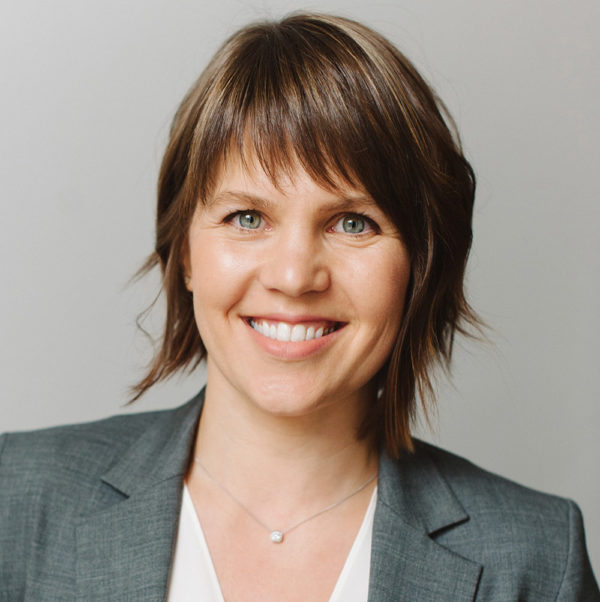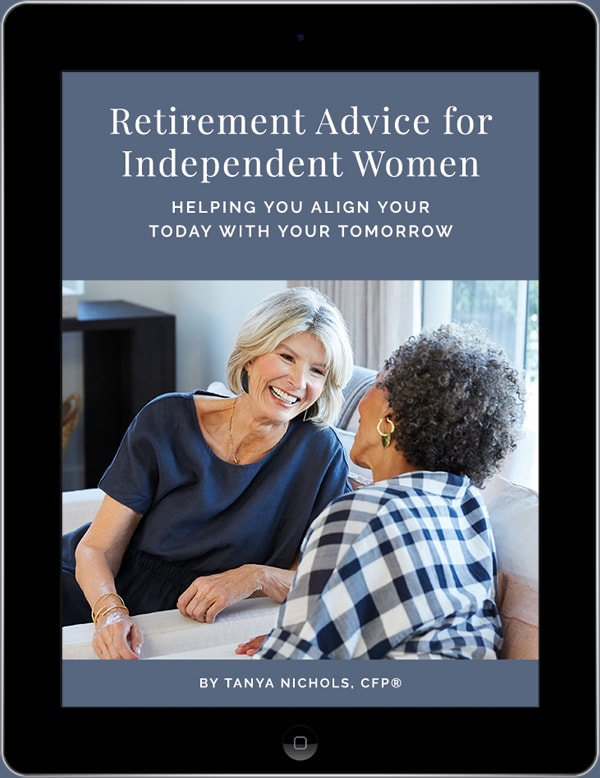Quarantine. Lockdown. Self-isolation. All of a sudden, like most of us, I found myself with a lot more time without commitments. Business trips were cancelled, meetings postponed and, my absolute favorite, I had time to think.
I can’t help but keep myself busy, so I looked at my to-do list. I knew my circumstances had changed over the last couple of years, meaning I had to update my life and disability insurance. Then, because that would affect the value of my estate plan, I had to revisit that as well (an important part of your financial plan should be regularly updating your estate plan, and I tell my clients this regularly).
As I do the work of following the same advice I share with my clients, I knew I needed to make my third estate plan.
Hope and Promise: My First Estate Plan
The first time I wrote my wills and other estate planning documents with my attorney, my life looked quite different. I had been married a couple of years, and had two teenage stepdaughters. I had just had a baby and was pregnant again. I was a few years into starting my business at US Bank and we were in the process of buying a new house.
I made an estate plan then because it was the responsible thing to do. We needed to make decisions about who would take care of our children and what would happen to our belongings. We also needed to have adequate life insurance and to think about what might happen if we encountered any serious health or physical problems.
Endings and Beginnings: My Second Estate Plan
Then in 2018, the horizons changed again, and I needed to revisit my estate plan. I returned to my attorney, filled with a sense of duty, grief and failure. All the hope and promise I had carried with me into the office the first time was gone – as was my marriage.
We made the decision and the divorce was quick. Incredibly sad, but amicable. No long drawn out arguments or court battles. Just paperwork – documents prepared, agreements made, forms signed.
I never could quite figure out how to share that I was divorced. You don’t really send out announcement cards. The newspaper does it for you (which feels archaic), and that led to the customary texts and emails checking in on us – but that was the extent of the announcement. It was so quiet, few people knew about it.
Deciding to Share My Story
For a long time I’ve wondered how to write about this part of the story, being careful that it’s not only mine to tell. It’s our kids’ story, and it’s still his too. But in the spirit of bringing my shields down, I wanted to tell the story as best I can with as much love, honesty and compassion as possible.
We all have stories like this; I know that because many of my clients share stories like this with me every day.
My husband was a master craftsman, and loved to fish and hunt. He had the humility of someone who had come back from the edge, and reconstructed a beautiful life. But his quiet, soft spirit had another side, and throughout his life he waged a well-fought battle against addiction and mental health issues, despite being in recovery for most of our marriage.
The Cracks Began to Show
A few years prior to our divorce he began to struggle again, and he made a few attempts at well-established treatment programs. I thought for a long time about all the ways it could get worse for him if I made the decision to leave. I had a tough choice to make to leave him to fight his battle on his own, before it took us all down with him.
Anyone who themselves has struggled with mental health issues or has loved someone who does, knows that these diseases can take up all the oxygen in the room. So when he graciously signed the divorce papers and left, I felt a relief that I am ashamed to admit most days.
On holidays and other important events I still feel sad, and sometimes wracked with guilt. But other days I feel grateful to have been able to shift the center of gravity for our family. Instead of revolving around the awful disease, my focus is now on our children and our collective wellbeing.
Acceptance and Moving Forward
So I was back there in the attorney’s office with a heavy heart. I had to have difficult conversations about who could care for my children if I was gone and how my finances would be handed on their behalf. Unfortunately, it was likely that their dad wouldn’t be able to deal with such things for a while at least.
Sharing some of these secrets with my lawyer felt embarrassing and shameful. I felt so vulnerable.
But he reminded me that I wasn’t alone and people everywhere are fighting battles against mental health problems in themselves or in someone they love. I also see these battles impacting my clients and having to disentangle their financial matters from the health problems, marriage breakdowns, and unexpected roadblocks along the way.
Going It Alone
But 2018 wasn’t just an ending. It was a beginning as well. That same year I opened my own office and started Align Financial. I don’t think it was a coincidence either. My shields came down, and I realized that just as I could stand on my own in my family, I could go it alone in business as well. I made some huge decisions that year, and created the life I really wanted for myself.
And during this period of quarantine, with all the enforced changes in our lives and time for self-reflection, I’ve seen many friends and colleagues make some huge decisions too. Major disruptions to our routine make us reconsider our priorities. They help us to see, with a laser-precision focus, what it is that we want and don’t want. They show us what we need and what we don’t need.
Decisions and changes flow almost naturally.
Financial Planning – Making New Decisions
Sometimes I’ll think back to decisions I’ve made in the past about my business or my life, and immediately I’ll question whether I made the right decision, followed the right path. But the reality is I’ll never know what the right decision was, and there’s no point in worrying about it.
It’s just a decision – one of many I’ll make in my life.
The thing about making any decision is that there is no right one. We make them all the time, and we live with all the consequences, the unintended and intended ripple effects of those decisions. In fact, most of my days as an advisor are spent talking with my private clients about decisions, not money.
Your Answers, Your Decisions
And they’re decisions we all make at some point after asking the questions we all ask.
When should I retire? How much should I save? How much should I spend? What are healthy, sensible financial boundaries in relationships? Should I sell my house? What happens if I get divorced?
And what about later? Who should handle my affairs for my family if I can’t? How much money should I leave to whom? Is it too much or not enough? What if I get sick? How do I make sure my kids learn the value of money despite what they inherit? How do I take care of medical expenses when I’m retired?
The hardest part of financial planning isn’t the numbers, it’s the decisions. And believe me, I have found these as hard as anyone else. But I’ve learned through personal experience that those decisions are just what needs to be done at any one point in time.
When another roadblock (or opportunity) gives us another reason to consider our finances, then reevaluations without regret or self-reprimand are straightforward. That roadblock or opportunity may come in the shape of enforced isolation and the time to think, or a major life transition like divorce or retirement.
Updating Your Estate Plan – Revisiting Past Decisions
When creating or updating your estate plan, remember that it’s only a measure of where you’re at right now, not where you’ve been and certainly not where you’re going.
My third estate plan is a snapshot of who I am, and what I would want to happen should I die or become disabled right now, in these circumstances. When I make any significant decisions in the future that will affect my estate value later on, I can revisit it.
If you’ve found yourself facing what feel like some tough decisions, let’s talk them through.













